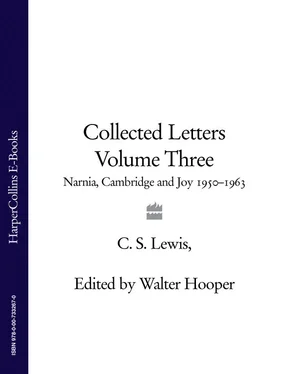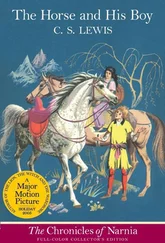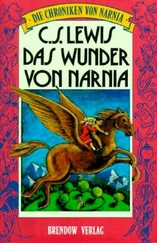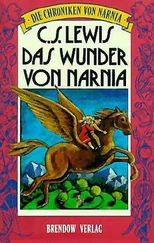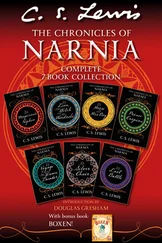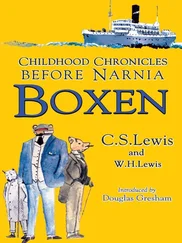The book is most beautiful, 32 yet not with any fussy and intrusive beauty that reduces the poems to parts of a pattern. My old friends look better in their new site—for I’m no Manichean, and think the beautiful soul should have a beautiful body. But one reason why they look better is that they are better than I remembered. I find that my very favourite, The Sparrow’s Skull , had in memory preserved only its poignancy and lost a great deal of its delicacy and poetic breeding. More shame to me when it was on my shelves and memory—apparently a vulgarising memory—could have been corrected. I say, Sinking , which I hadn’t properly noticed before, is a corker. So indeed are dozens. It is a good time for re-reading: I have the precious vulnerability of the convalescent. Why do they call it ‘depression’? I like it.
The engraving is perfect except for (possibly) the Muses’ profile where I think the heavy, moustache-like shadow on the upper lip is a pity: 33 but probably not so in the original. Yes. I have good reason to remember your vine and ‘to consider it’ (as in this picture) ‘is to taste it spiritually’–so Traherne says in his Centuries of Meditations, 34 which I expect you know and am sure, if you know, you love.
When next term cd. you come down and lunch? There’s an extra reason: you have property to reclaim. Groping in the inn’ards of an old arm chair lately (a place which rivals the sea bed for lost treasure) I fished out a spectacle case which, being opened, revealed your golden name wrapped in your silver address. So come in May or June: preferably not a Tuesday. Let me know your ideas on this.
I’m off to Northern Ireland after Easter to try my native air—half frightened at the thought. Very many thanks for the book: it has given me great pleasure already.
Yours sincerely
C. S. Lewis
TO MARY VAN DEUSEN (W):
Magdalen College
Oxford
17/3/51
Dear Mrs. Van Deusen
No. Unless it attracts you as an amusement I wouldn’t advise you to start attending ‘classes’. My idea is that unless one has to qualify oneself for a job (which you haven’t) the only sensible reason for studying anything is that one has a strong curiosity about it. And if one has, one can’t help studying it. I don’t see any point in attending lectures etc with some general notion of ‘self-improvement’–unless, as I say, one finds it fun.
I never see why we should do anything unless it is either a duty or a pleasure! Life’s short enough without filling up hours unnecessarily. And I think one usually learns more from a book than from a lecture.
With all good wishes.
Yours sincerely
C. S. Lewis
TO CHRISTIAN HARDIE (P): 35
Magdalen etc
22/3/51
Dear Christian
Your commands have been obeyed. 36 About half way through, not having yet met a single scene or character that thoroughly engaged my interest, I nearly gave up: but perseverance was rewarded, for the second half is better. One forgives Julia quite a lot for her outburst on p 255 about Charles’s ‘damned bounderish way’.
Waugh is a writer, certainly. Many descriptions, phrases, and long-tailed similes pleased me: but not the novel, as a novel. If one’s going to tell the story through one of the characters then, surely, either that character ought to be a fairly sane and straightforward one (as in Erewhon 37 or Rob Roy ), 38 or else, if he’s a monstrosity, then the other characters ought to be normal (as in Hogg’s Justified Sinner 39 or McKenna’s Well Meaning Woman). 40
As Chesterton said, you can have a story about a knight among dragons, but not about a dragon among dragons. 41 Or, to come nearer, I can manage humans seen in a distorting mirror or goblins seen in an ordinary mirror: but goblins in a distorting mirror is too much. In spite of clear distinctions, the narrator is so very much ‘the same kind of thing’ as Blanche & Sebastian and his own father & Ld. M, and all the others—the tiresome seen through the eyes of the tiresome. And Sebastian would be a terrible bore on any terms. The narrator’s spontaneous dislike [of] all nice people (e.g. old Lady M. or Ld. Brideshead) has, I suppose, a theological significance?
But apart from all this—what, please, ought I now to know about the ‘contemporary scene’ after reading it? His picture of undergraduate life is, I suspect, much more characteristic of 1912 than of 1923: but for obvious reasons cd. not be really characteristic of any period. Not even characteristic within the circles he describes: for though I didn’t know them, I do know that if I did they wouldn’t look at all like that to me–any more than the circles I do know consist solely of Hoopers. 42 Julia’s excellent remark about Mottram on p. 277 (‘He was a tiny bit of one’) seems to me true of all the characters except Julia herself. There isn’t one that is round and live like Levin 43 or the Rostovs, 44 or Archdeacon Grantly, 45 or Ld. Monmouth in Coningsby. 46 They’re more like people out of an Oscar Wilde melodrama, only without the epigrams.
Am I missing the point? Haunted by that fear I asked a man so young that W is to him an old master what he had got out of the book. He said ‘Oh, snob-value: it delighted the housemaid in me’ (i.e. he got out of it the same sort of pleasure my generation got out of Benson—I mean the Dodo one). 47 But that can’t be why you admire it. Nor can you think that ‘the contemporary scene’ is just what W describes: because after all we have independent access (worse luck!) to that scene. I’m puzzled.
You shall prescribe me a book to read every Lent: a kind of literary hair shirt.
You gave me a charming interlude on Tuesday—a bit of ‘contemporary scene’ quite omitted by W.!
Yours
Jack
TO ARTHUR GREEVES (BOD):
[The Kilns]
23/3/51
My dear Arthur
Naturally, without a Co. Down Ry. 48 time-table I can’t tell you what time I’d be at Helen’s Bay! But we shall find better uses for your petrol, and I’ll come by bus from Oxford St. I’m glad to know there’s a ‘regular’ service and am wondering whether it runs regularly every 5 minutes, every hour, once a week, or only a century. 49 No doubt I shall find out.
Looking forward!–yes, I can’t keep the feeling within bounds. I know now how a bottle of champagne feels while the wire is being taken off the cork.
Yours
Jack
Pop!!
TO DOUGLAS EDISON HARDING (P): 50
Magdalen etc
Easter Day [25 March] 1951
Dear Mr. Harding
Hang it all, you’ve made me drunk, roaring drunk as I haven’t been on a book (I mean, a book of doctrine: imaginative works are another matter) since I first read Bergson during World War I. 51 Who or what are you? How have you lived 40 years without my hearing of you before? Understand at once that my delight is not, alas!, so significant as it may seem, for I was never a scientist and have long ceased to be even the very minor philosopher I once was.
A great deal of your book is completely beyond me. My opinion is of no value. But my sensation is that you have written a work of the highest genius. It may not be—I mean, I can’t vouch that it is–philosophical genius. It may be only literary genius. The feeling I get is like a mix up of Pindar, Dante, & Patmore. (But can anything be so well written if it’s not good thought as well?). You follow the rocket course wh. you ascribe to Tellus. 52 Paragraph after paragraph starts as if we were embarked for only the sort of Pantheistic uplift one gets in Emerson, but then swoops down and comes all clean & hard. But remember always, I don’t really understand: especially the crucial cap. 13 wh. is no easier than the Deduction of the Categories. (One difficulty is that my excitement makes me read it too quickly).
Читать дальше
